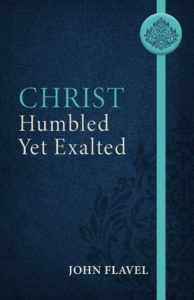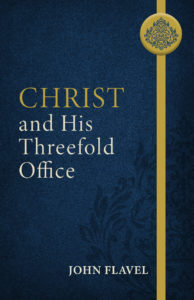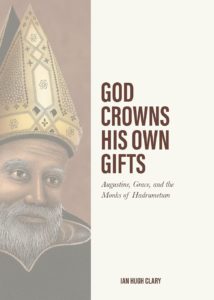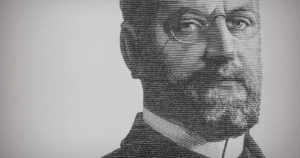
Author’s Corner
Each week on Credo we welcome you to join us in the Author’s Corner where we will meet a set of authors whose recent books deserve your attention and might even help you grow in your knowledge of theology, history, philosophy, and the scriptures. We hope the Author’s Corner can keep you up-to-date on the most important books published today and where you can find them.
On today’s Author’s Corner, we present you with a selection of books, old and new, from Reformation Heritage and Hesed&Emet.
C hrist Humbled yet Exalted (Reformation Heritage) by John Flavel
hrist Humbled yet Exalted (Reformation Heritage) by John Flavel
John Flavel shows Christ as our fountain of true joy: secured for his people by his humiliation and his exaltation. By humiliation, Flavel means the incarnation – Christ’s birth, ministry, and death – by exaltation he means the four stages of resurrection, ascension, intercession, and His return in judgment.
Flavel shows this twofold act (humiliation and exaltation) is the foundation of our joy because through them Christ has removed our debt and secured our inheritance. “The believer knows,” says Flavel, “that however sweet his communion with Christ is in this world, yet that communion he will have with Christ in heaven will far excel it.”
C hrist and His Threefold Office (Reformation Heritage) by John Flavel
hrist and His Threefold Office (Reformation Heritage) by John Flavel
Flavel explores the glory of Christ becoming a man “to qualify and prepare Him for a full discharge of His mediatorship, in the office of our Prophet, Priest, and King.”
“Salvation,” says Flavel, “is revealed by Christ as a Prophet, procured by Him as a Priest, applied by Him as a King. In vain it is revealed, if not purchased; in vain revealed and purchased, if not applied.”
Flavel’s treatment of the subject is polemical when necessary and painstakingly detailed when he believes the truth is at stake. It is an act of adoration, of meditations upon “the transcendent excellency of Jesus Christ.”
G od Crowns His Own Gifts: Augustine, Grace, and the Monks of Hadrumetum (H&E, 2021) by Ian Hugh Clary
od Crowns His Own Gifts: Augustine, Grace, and the Monks of Hadrumetum (H&E, 2021) by Ian Hugh Clary
Augustine of Hippo (354-430) was the model pastor-theologian who both defended orthodox theology from heresy and shepherded those under his care as bishop. During the Pelagian controversy we see this clearly illustrated in his defense of predestination against radical affirmations of the freedom of the will. However, during the so-called “semi-Pelagian” controversy Augustine demonstrated his pastoral sensitivity wherein he articulated a view of the will that did not absolve humans of their moral responsibility before God. Late in his ministry he was led to address the concerns of a group of unwitting monks in Hadrumetum who feared that his earlier view of grace and predestination made humans mere automatons. With great care he showed that humans were indeed free moral agents, even if their wills were bound by sin and requiring of saving grace. With this balance we see Augustine, without contradiction, strenuously defend predestination against the Pelagians and affirm the freedom of the will in dialogue with the monks of Hadrumetum. This is well illustrated in a selection of his anti-Pelagian writings, namely his Letter 194 to Pope Sixtus and in the series of writings to the monks of Hadrumetum. In this book Ian Clary relates these works with the aim of elucidating the twofold role of Augustine as pastor-theologian: a fierce defender of orthodoxy and a humble teacher of the faith.

